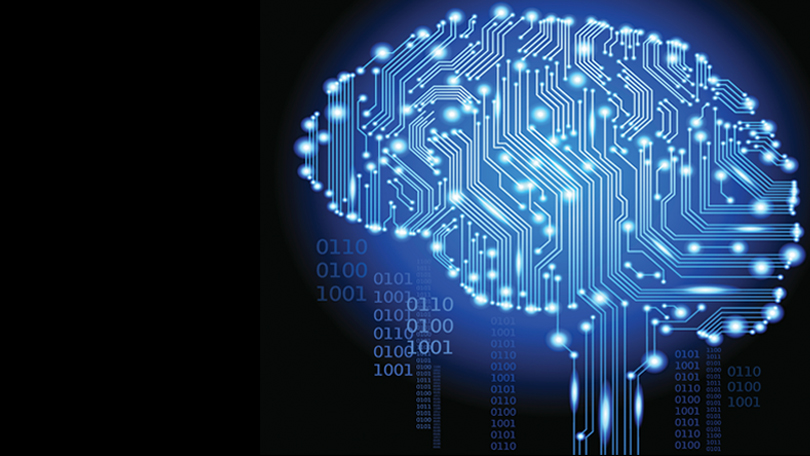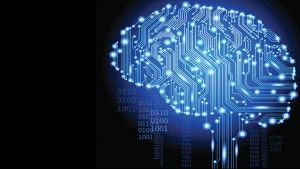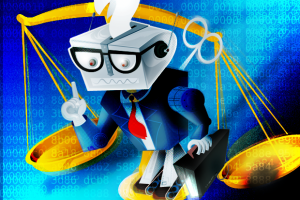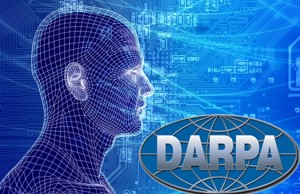In this blog post, Vineet Kumar, a student of National Law University of Orissa, and Nalini Chandrakar, a student of Hidayatullah National Law University writes about artificial intelligence and its need in India. The blog post also deals with the recent developments in artificial intelligence and its position in India.
Introduction
Humans have always attempted to find new ways to perform different tasks easily with least efforts. For this, new technologies have been developed and are still being developed, one of which is the technology of Artificial Intelligence. Though the concept of artificial intelligence originated way back around the 1950s, the field still requires a lot of research and development even in the developed economies of the world. The idea that humans could, at some point, develop machines that actually “think” for themselves and act autonomously has been embedded in our literature and culture since the beginning of civilization.[1]
Defined by Prominent Minds- In simple terms, artificial intelligence can be understood as a technology that the can behave, respond and act like humans and may also replace human species in different works, like driving. It is difficult to give a precise definition to the term “artificial intelligence”. As per Haugeland, it is “the exciting new effort to make computers think…machines with minds, in the full and literal sense”.[2] For instance, the mathematician named Akan Turing, who is most closely associated with the artificial intelligence, contributed to the development of Manchester Mark I computer and was involved in research aimed at the question of how to judge the intelligence of a machine. His speculation on the latter led to which is now called the “Turing Test.”
For Bellman, it is “the automation of activities that we associate with human thinking, activities such as decision-making, problem-solving, learning…”[3]Charniak and McDermett define AI as “the study of mental faculties through the use of computational model”.[4] And for Winston, it is “the study of the computations that make it possible to perceive reason and act.”[5]
Artificial Intelligence and Law
The Artificial Intelligence and Law, the domain of both, are enticing for AI analysis for many reasons. First, the law encompasses a tradition of examining its reasoning method. Second, a lot of legal data is quickly accessible and comparatively well structured, written and indexed. The Lawyers’ nowadays are technology savvy and have an interest in AI techniques and software system. Lawyers’ offices use tools that gather, filter, and structure legal arguments in an exceedingly efficient manner. The sooner works within the field like Lexis and WESTLAW be keyword based mostly. Within the domain of AI to law, the researchers have encountered attention-grabbing and troublesome issues of each the fields. The domain of AI and law is far more than an applications space. The sector touches upon problems at the terribly heart of AI reasoning, illustration, and learning. Topics like negotiation, decision-making, e-commerce, linguistic communication, information retrieval, extraction and data processing AI and Law may be a wealthy supply of issues and motivation for the interested researchers.
There are works in past regarding confronting of legal arguments that haven’t solely created programs that would lead to producing legal arguments. However, additionally, it has led to insights and advances within the logic of argumentation. The application-oriented works have often provided insights into the restrictions of existing techniques. There’s forever collaboration, not solely between Law and AI however additionally between AI and AI. Work on AI and Law has been notably fruitful within the last decade. Besides providing advanced laptop applications for the legal domain like knowledge-based systems and intelligent data retrieval, analysis on AI and Law has developed innovative knowledge base models for understanding legal systems and legal reasoning, which plays a vital role in the field of philosophy of law and legal theory. Today there is a robust need for group action analysis in AI and law among legal theory, but additionally, it’s required to cover the various branches of analysis in AI and law.
Michael Negnevitsky in the book “Artificial Intelligence: A Guide to Intelligent Systems” says that “the development of expert system created knowledge engineering: the process of building intelligent systems. Today it deals not only with expert systems but also with neural networks and fuzzy logic. Knowledge engineering is still an art rather than engineering, but attempts have already been made to extract rules automatically from numerical data through neural network technology”.
Recent developments
Though, practically speaking, robots are unlikely to replace lawyers in court, but they can prepare papers for hearings. Despite the early enthusiasm, the concept of computers and robots replacing human hands in legal reasoning tasks is yet to get a real shape. However, there are positive signs that a combination of technological advance and market forces may push the law firms and make them step into the AI stage. A recent study conducted by Jomati points out that, “technology can suddenly race ahead at astonishing speed”.[6]
AI based system has already been introduced in the field of journalism. The Associated Press news agency has devised strategies to automate the writing of corporate earnings reports with an AI system named Wordsmith. It spots designs, patterns and trends in raw data and then describes those findings in natural language. Applying the similar technique, legal documents can be produced, and such systems could also carry out many tasks given to the paralegals and junior associates. Another more sophisticated use of the AI technology can be done to provide strategic guidance. By trawling through past case records in no time, a system can find the optimum percentage at which an increased offer would lead to a settlement position in a case.
Recently an Ohio-based law firm called Baker & Hostetler had recruited IBM’s AI Ross to handle and manage their bankruptcy practice.[7] It is based on IBM’s Watson, which is a cognitive computer with the capability of gaining knowledge about humans by noticing their interactions, experiences and perceptions. In other words, it is based on the technique of human recognition.
In Japan, robots powered by the Watson technology are used by Nestle cafes to provide information about their products to the consumers. The US Defense Advanced Research Projects Agency (DARPA) is presently funding some artificial intelligence projects which could potentially equip governments with the most powerful weapon possible, i.e. the mind control.[8]
Position in India
Currently, there are no defined laws or regulations that govern the field of artificial intelligence in India. Though India is making fast progress regarding technology, the scientists are yet to discover full potential and utilization of this technology. Some independent bodies exist with an aim to research and create machinery underlying the thought of intelligent behaviour.
One such organization is the Artificial Intelligence Association of India (AIAI). Founded in the year 2009, it is a non-profit scientific society devoted to advancing the scientific understanding of mechanisms underlying the thought and intelligent behaviour and their embodiment in machines.[9]
Indian innovations are yet to be implemented with this technique. The Centre for Artificial Intelligence and Robotics, which is a branch of DRDO, has developed the Network Traffic Analysis Software (NETRA). This software has capabilities to intercept and analyze the internet traffic via specified filters. Currently, this software is being used by RAW, IB, state-level law enforcement agencies and is piloted by Ministry of Home Affairs.[10] There is a need to realize the true potential of the Artificial Intelligence technology and implement it judiciously in different fields like defense, sports, infrastructure, etc.
Footnotes:
[1]Haugeland, J., (ed.) Artificial Intelligence: The Very Idea, MIT Press, USA, 1985, quoted in Stuart J Russell and Peter Norvig, Artificial Intelligence: A Modern Approach, Tan Prints (India) Pvt., New Delhi, 2002, p.5
[2]Philosophy of Artificial Intelligence: A Critique of the Mechanistic Theory of Mind, RajakishoreNath, p.21
[3]Bellman, R. E., An Introduction to Artificial Intelligence: Can Computers Think?, Boyd and Fraser Publishing Company, San Francisco, USA, 1978, quoted by Stuart J Russell and Peter Norvig, in Artificial Intelligence: A Modern Approach, p.5
[4]Charniak, Eugene & McDermott, Drew, Introduction to Artificial Intelligence, Addison-Wesley Publishing Company, Canada 1985, p.6
[5]Winston, Patrick Henry, Artificial Intelligence, Addison-Wesley Publishing Company, London, July 1984, p.2
[6]Civilization 2030: The Near Future for Law Firms
[7]indiatoday.In (May 20th, 2016)
[8]Hacking Without Borders: The Future of Artificial Intelligence and Surveillance, Maria Xynou, The Center for Internet & Society (Mar. 15th, 2013)
[9]aiai.org.in
[10]The Centre for Internet and Society
 Serato DJ Crack 2025Serato DJ PRO Crack
Serato DJ Crack 2025Serato DJ PRO Crack













 Allow notifications
Allow notifications



[…] Artificial intelligence has transformed every professional sector and the legal profession is no exception. Not only are the software solution replacing paperwork and data management, the legal industry is also becoming consumer-centric. Due to globalization, legal business has undergone continuous growth and technology advancement. […]